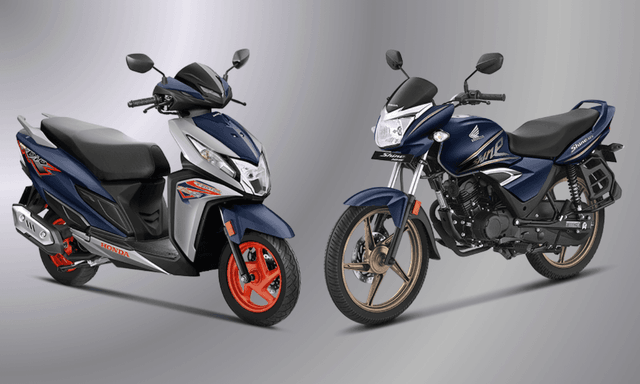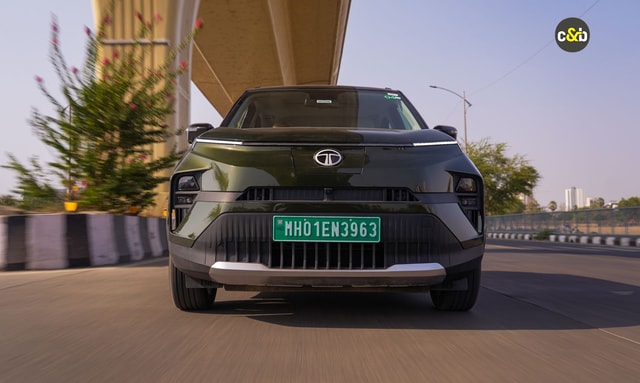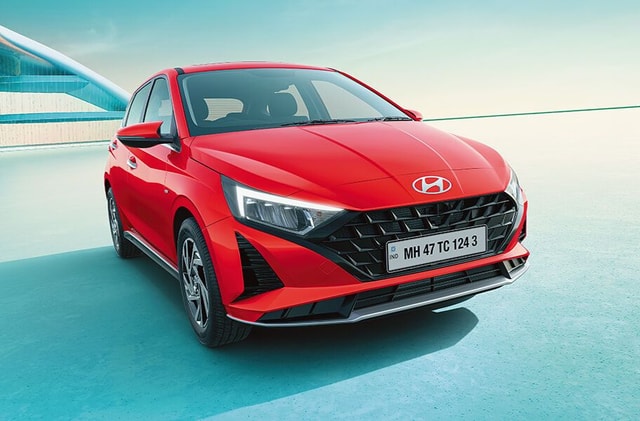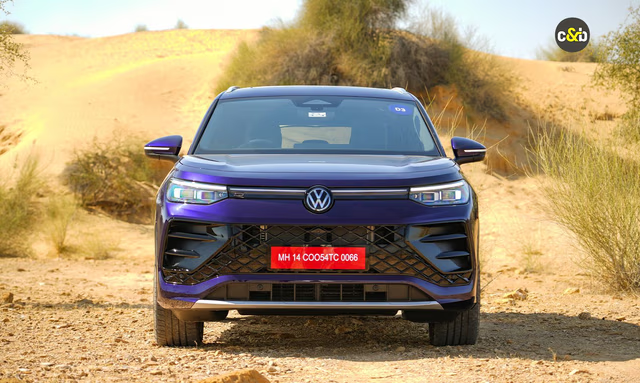Car Sales December 2021: Tata Motors Surpasses Hyundai To Become No. 2 Carmaker In India

- Tata Motors's PV sales stood at 35,300 units in December 2021, up by 50%
- Tata's EV sales stood at 2,215 units in December 2021, up by 439%
- Tata Motors' CV sales stood at 31,008 units in December 2021, up by 4%
Tata Motors has overtaken Hyundai Motor India to become the second largest-selling carmaker in India in December 2021. The Indian auto giant's domestic car sales stood at 35,300 units last month, while Hyundai sold 32,312 units during the same period. The strong volumes are backed by a slew of popular-selling products for Tata Motors, which also helped the carmaker record its highest-ever monthly sales in December. In fact, the company sold 99,002 units during Q3 FY2022, the highest-ever quarterly sales numbers in a decade. Lastly, Tata sold 3.31 lakh units in the 2021 calendar year, the highest-ever annual sales for the automaker.
Also Read: Skoda Sees 47% Growth In December, Reports Triple-Digit Growth In 2021
The spike in sales comes despite production constraints and challenges amidst the semiconductor chip shortage. With respect to year-on-year growth, Tata's sales grew by 50 per cent in December 2021 when compared to 23,545 units sold in December 2020. Sales in Q3 FY2022 also increased by 44 per cent with respect to a year-on-year comparison.

Tata Motors is still a distant second with Maruti Suzuki leading by a sizeable margin with 1.53 lakh units sold in December 2021
Speaking about the strong sales figures, Shailesh Chandra, President, PVBU, Tata Motors said, "Tata Motors PV business growth journey continued and set several new milestones during the quarter despite witnessing a shortfall in production due to the ongoing semiconductor crisis. The overwhelming market response to Tata Punch launched in October 2021 is further boosting demand for the company's "New Forever" range of cars and SUVs."
Tata's electric vehicles also garnered a strong response as sales picked up for the Nexon while the company also introduced the Tigor EV last year. The company sold 2,255 units in December 2021 and registered a whopping 439 per cent growth against 418 units sold in December 2020. The company sold a total of 5,592 EVs in Q3 FY22, as against 1,256 units in Q3 FY21, a hike of 345 per cent.
Also Read: Mahindra Auto Sees 11% Growth YoY In December 2021

Tata's EV sales grew by 439% in December backed by new products and surge in fleet sales
Speaking on the EV sales, Chandra said, "EV penetration touched 5.6 per cent of PV Sales during the quarter versus 1.8 per cent in the same period last financial year. EV sales also touched 10,000 units in 9MFY22 and crossed the 2,000 monthly sales landmark for the first time in December 2021. The ever-increasing demand for Nexon EV and Tigor EV, as well as the progressive revival of the EV fleet segment, were instrumental in driving this steep growth."
In the commercial vehicle segment, Tata Motors show signs of recovery as nearly all segments posted positive numbers. Domestic CV sales stood at 31,008 units in December 2021 witnessing a growth of 4 per cent while exports during the same period stood at 3,143, growth by 5 per cent. Domestic sales in Q3 FY22 stood at 90,529 units growing by 10 per cent, while exports during the quarter registered better numbers at 9,541 units witnessing a 33 per cent growth.

Tata Motors CV sales show signs of recovering with exports doing better than domestic sales
Girish Wagh, Executive Director, Tata Motors said, "The retail was ahead of wholesale by 15 per cent in December'21, enabling inventory alignment. The SCV and ILCV segments continued to benefit from the growth in e-commerce and the increasing need for last-mile delivery. Construction and infrastructure spending by central and state governments plus rising activity in sectors such as mining, petroleum-oil-lubricants and allied industries facilitated the demand for M&HCVs. Going forward, we expect the situation to remain fluid as the semiconductor shortage continues, instances of Covid begin to rise and underlying demand continues to remain under pressure. We are keeping a close watch on the evolving situation and sharpening our agile, multi-pronged approach to fulfil customer orders."
However, the semiconductor shortage continues to be challenging for the auto industry at large. Speaking about the challenges ahead, Chandra cautioned, "Going forward, semi-conductor supplies will remain the key source of uncertainty. Additionally, the impact of the new strain of Covid needs to be closely tracked. We will continue to work on a business agility plan and take proactive actions to mitigate these risks."
Latest News
 Jaiveer Mehra | Feb 5, 2026Honda Dio 125 X-Edition, Shine 125 Limited Edition LaunchedBoth special editions get a variant-specific colour scheme and graphics.1 min read
Jaiveer Mehra | Feb 5, 2026Honda Dio 125 X-Edition, Shine 125 Limited Edition LaunchedBoth special editions get a variant-specific colour scheme and graphics.1 min read Seshan Vijayraghvan | Feb 5, 2026Tata Punch EV Facelift To Be Launched On February 20The electric version of Tata’s SUV-esque hatchback will be launched on February 20, 2026, and, like the petrol-powered version, it will receive a range of visual and feature upgrades.2 mins read
Seshan Vijayraghvan | Feb 5, 2026Tata Punch EV Facelift To Be Launched On February 20The electric version of Tata’s SUV-esque hatchback will be launched on February 20, 2026, and, like the petrol-powered version, it will receive a range of visual and feature upgrades.2 mins read Bilal Firfiray | Feb 5, 2026Hyundai i20 Line-Up Now Starts At Rs 5.99 LakhThree variants of the Hyundai i20 have received a price rejig – Era, Magna and Magna Executive.1 min read
Bilal Firfiray | Feb 5, 2026Hyundai i20 Line-Up Now Starts At Rs 5.99 LakhThree variants of the Hyundai i20 have received a price rejig – Era, Magna and Magna Executive.1 min read Jaiveer Mehra | Feb 5, 2026New Mercedes-Benz V-Class India Launch On March 3The V-class is set to return to the Indian market in Extra Long Wheelbase guise and is likely to be a CBU import.2 mins read
Jaiveer Mehra | Feb 5, 2026New Mercedes-Benz V-Class India Launch On March 3The V-class is set to return to the Indian market in Extra Long Wheelbase guise and is likely to be a CBU import.2 mins read Seshan Vijayraghvan | Feb 4, 2026Skoda Kylaq Crosses 50,000 Units Sales MilestoneThe Kylaq has been the brand’s best-selling car, which has led to Skoda Auto India’s best-ever sales performance in 2025.1 min read
Seshan Vijayraghvan | Feb 4, 2026Skoda Kylaq Crosses 50,000 Units Sales MilestoneThe Kylaq has been the brand’s best-selling car, which has led to Skoda Auto India’s best-ever sales performance in 2025.1 min read Seshan Vijayraghvan | Feb 4, 2026Volkswagen Tayron R-Line’s Pre-Bookings Open For Rs. 51,000Customers can pre-book the SUV for a token of Rs. 51,000; however, the price announcement will take place sometime later in February 2026.1 min read
Seshan Vijayraghvan | Feb 4, 2026Volkswagen Tayron R-Line’s Pre-Bookings Open For Rs. 51,000Customers can pre-book the SUV for a token of Rs. 51,000; however, the price announcement will take place sometime later in February 2026.1 min read
 Bilal Firfiray | Feb 4, 2026Volkswagen Tayron R-Line Review: Sensible Flagship For IndiaVolkswagen has introduced a made-in-India flagship SUV that offers space, comfort, performance, and German driving finesse in a practical three-row package. But is the Tayron R-Line good enough?6 mins read
Bilal Firfiray | Feb 4, 2026Volkswagen Tayron R-Line Review: Sensible Flagship For IndiaVolkswagen has introduced a made-in-India flagship SUV that offers space, comfort, performance, and German driving finesse in a practical three-row package. But is the Tayron R-Line good enough?6 mins read Preetam Bora | Feb 2, 2026TVS NTorq 150 Road Test Review: Bigger, Better & More Efficient!We test the new TVS NTorq 150 out in the real world to get a sense of what it offers in terms of performance, dynamics and fuel economy.7 mins read
Preetam Bora | Feb 2, 2026TVS NTorq 150 Road Test Review: Bigger, Better & More Efficient!We test the new TVS NTorq 150 out in the real world to get a sense of what it offers in terms of performance, dynamics and fuel economy.7 mins read Bilal Firfiray | Jan 21, 2026Tata Punch Facelift Review: New Turbo Engine; Same Old SoulWith the update, the Tata Punch facelift retains its character of being a healthy runabout, which is perfect for Indian roads. But have these changes made it any better?7 mins read
Bilal Firfiray | Jan 21, 2026Tata Punch Facelift Review: New Turbo Engine; Same Old SoulWith the update, the Tata Punch facelift retains its character of being a healthy runabout, which is perfect for Indian roads. But have these changes made it any better?7 mins read Amaan Ahmed | Jan 17, 2026Bajaj Chetak C25 First Ride Review: Basic, Likeable E-Scooter For First-Time RidersThe Chetak C25, in quite a few ways, is poles apart from the larger and more powerful 30 and 35 Series models, but in its mannerisms, it is very much a Chetak.8 mins read
Amaan Ahmed | Jan 17, 2026Bajaj Chetak C25 First Ride Review: Basic, Likeable E-Scooter For First-Time RidersThe Chetak C25, in quite a few ways, is poles apart from the larger and more powerful 30 and 35 Series models, but in its mannerisms, it is very much a Chetak.8 mins read Bilal Firfiray | Jan 9, 2026Toyota Urban Cruiser Hyryder: 10,000 km Long-Term ReviewAfter spending over three months and 10,000 km with the Toyota Urban Cruiser Hyryder Hybrid, we were impressed by its real-world mileage, seamless hybrid, practical comfort, and Toyota reliability. Is it the best C-SUV then?5 mins read
Bilal Firfiray | Jan 9, 2026Toyota Urban Cruiser Hyryder: 10,000 km Long-Term ReviewAfter spending over three months and 10,000 km with the Toyota Urban Cruiser Hyryder Hybrid, we were impressed by its real-world mileage, seamless hybrid, practical comfort, and Toyota reliability. Is it the best C-SUV then?5 mins read

































































































































